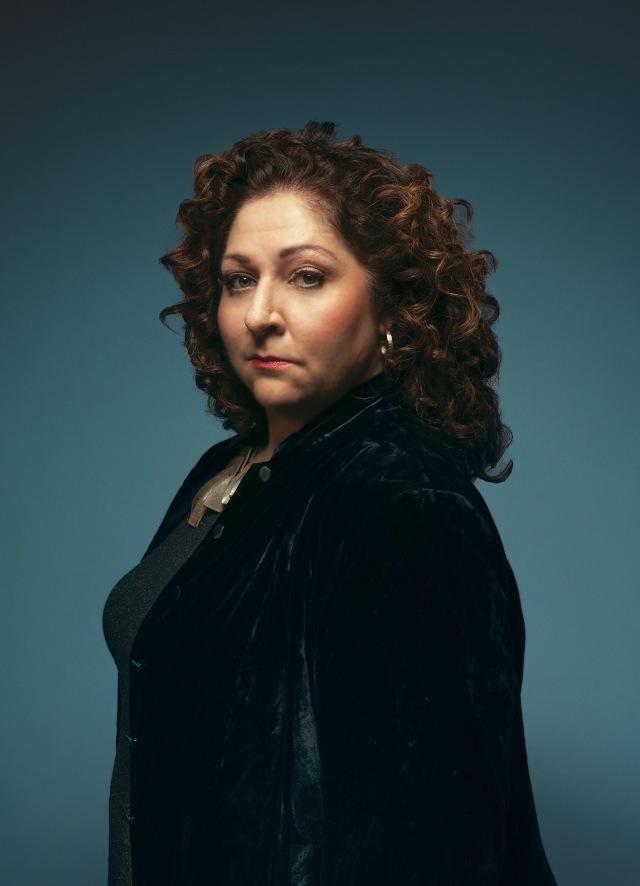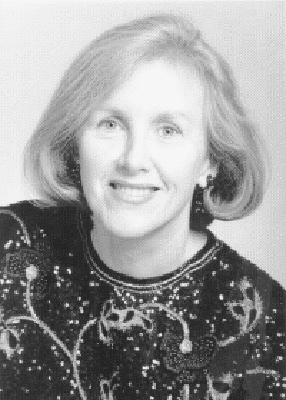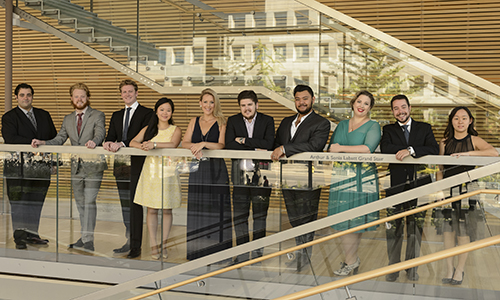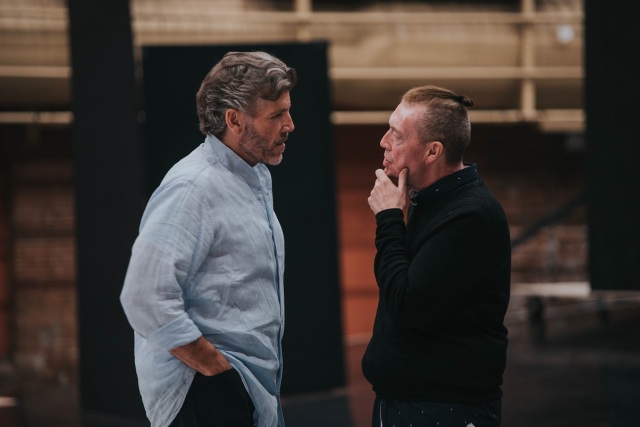I had the good luck to see Rusalka in Montreal in November 2011, starring Kelly Kaduce. In my review I said
First and foremost, the production leans happily on soprano Kelly Kaduce, whose voice is always pleasant & in tune, and sometimes astonishingly expressive. The demands of the role are somewhat daunting if you consider that Rusalka is a mermaid who is transformed into human form, for a time bereft of her voice, and betrayed by the prince who prefers the heat of a high-maintenance princess to the unconditional love of Rusalka: a mute beauty who is as cold as the princess is hot. Kaduce’s physical beauty not only mirrored the innocent loveliness of the natural world from which she comes, but made this challenging story far more believable and absorbing.
Kaduce has a voice, a sensitivity to language & words, and acting ability. Her physical attractiveness adds an important dimension to her portrayals. And her range of roles is remarkable, as I discovered when I googled a bit further.

Anna Karenina (Kelly Kaduce) with her lover, Vronsky (Robert Gierlach). (photo: Deborah Gray Mitchell ). Click image for NY Times review
For her creation of the title role in Anna Karenina, Opera News proclaimed her “an exceptional actress whose performance was as finely modulated dramatically as it was musically… and her dark, focused sound was lusty and lyrical one moment, tender and floating the next.” For her Boston Lyric Opera debut in the title role of Thaïs, Opera News observed, “Kaduce sings with bell-like purity and silvery sweetness, and she suspends her legato with an effortless, sensual spin. A born actress, Kaduce is also a masterful illuminator of text.“
Kaduce seems to have done an amazing amount considering her youth. She created new roles in original operas such as Anna Karenina, Michael Berkeley’s Jane Eyre (another title role) , Kevin Puts’s Silent Night, Bright Sheng’s Madame Mao and Ricky Ian Gordon’s The Grapes of Wrath. She’s done Donna Elvira, Pamina & the Countess in Marriage of Figaro, Desdemona & Violetta, Rusalka, Mimi & Cio-cio san, Susannah, Juliette, Marguerite, Salome, …and she turns 40 this year.
Does cutting it off like that make you want to hear more? Me too.
Kaduce is married to baritone Lee Gregory with a three-year old son. As she prepares for the title role in the Canadian Opera Company revival of Brian Macdonald’s production of Madama Butterfly in October, I ask Kaduce 10 questions: five about herself, and five about singing the part.
1) Are you more like your father or your mother?
I would say I have taken traits from both of them. My mother was a big influence in music for me. She plays the piano and is the local church organist in my hometown of Winnebago, Minnesota. I loved singing in the children’s church choir and had my first solo at 4 years of age in front of the congregation. “This little light of mine” A favorite of mine since it had fun hand actions that went along with the song! As you can guess I was certainly the loudest child in the group. My mother was the first to get me interested in playing the piano as well. On top of all that, she also was the pianist for the local theater group. I had my first role debut as Annie in 4th grade in the Winnebago Community Theater. A lot of my interest in music was initiated by her. I get my silly, playful side from my father along with my interest in home improvement projects. My father owns his own plumbing business and has a side hobby of renovating houses. That’s been with me from childhood. I enjoy doing hands on projects. He’s happy to be my phone consultant.
Another interesting side bar, I am adopted and have recently connected with my birth mother. Music has been a part of her life too. It seems I have had music in my genetics and in my environment!
2) What is the best thing or worst thing about being an opera singer?
In the “Best” category it is hard to list them all! The act of singing itself is one of the biggest rewards. There is a very zen-like zone you get into. Some may call it spiritual or meditative. Not many people have a job that allows them to feel this state on a regular basis. Another perk is the many interesting and creative people involved in the field of opera. The last I will mention is simply the music! I love ALL kinds of music. Being a singer allows you to be SMACK in the middle of it. When you are required to learn a role and perform it over and over, you have the opportunity to learn pieces inside and out.
The worst things…well, one is the same as the best: The act of singing itself. There are days when you cannot find the zone, or you are under the weather, or just plain tired. On those days the act of singing can feel painful and frustrating, but you are required because it is your job. Another thing I have come to dislike is the act of travel. Not seeing new places mind you, but the packing, airports, trying to figure out how to travel with a toddler! I have a 3 year old.
3) Who do you like to listen to or watch?
I do enjoy unwinding with all of the fascinating TV series that are out now. Game of Thrones, the Bridge, Nurse Jackie, Broadchurch, Wilfred, I could go on and on. Probably the standards that a lot of people watch. As for music, I have ALL kinds: Pop, Rap, Blue Grass, Jazz, etc. I enjoy running and listen to mixes while I run. Sometimes I will download talk radio from the National Public Radio station in the US and catch up on the news while I run. In truth, I rarely listen to opera or classical music outside of work. My husband and I will go to the opera or symphony on a date if we have the opportunity.
4) What ability or skill do you wish you had, that you don’t have?
So many to choose from! I wish I had the skill and knowledge to build a house from scratch with my own two hands. I think I would find that very rewarding.
5) When you’re just relaxing and not working what is your favorite thing to do?
My ideal day of relaxation looks like this: Lay around the house, read and drink plenty of coffee. Plan and cook some delicious meals with fresh ingredients. Go for an easy jog or a yoga class. Wrestle with Colin, my 3 year old, on the bed. His favorite is “tickle toes airplane ride”. He has the BEST laugh. Then end the day with some tv watching with my husband.
~~~~~~~
Five more about preparing to sing Madama Butterfly.
1) Please talk about the challenges in Butterfly.
I do think Butterfly is more difficult than Salome or Rusalka. Salome technically requires more volume to cut the thick orchestra, but it is compact and the bulk of the pumping out of sound comes toward the end. Rusalka has more periods of rest built in. For the first half of Act 2, she is on stage but mute. One of the main difficulties of Butterfly is the amount of music she is required to sing with minimal time to simply be quiet. Also in most current productions, the intermission between Act 2 and 3 is removed which means even less time to rest. Another factor is her youth. Young people have A LOT of energy. Part of portraying her youth is the underlying energy. One of the vocal difficulties of Butterfly are the moments that require a lot of volume in the middle voice. It is a natural part of the lyric soprano voice to be able to create a lot of sound in the upper register, but not necessarily in the lower middle register. It can be quite tiring and requires a lot of concentration.
You asked about “big arias”. In fact there are 4 big arias and they are all quite different. Each aria gets progressively heavier and lower. The entrance aria sits the highest and has an optional high d flat at the end. The second aria is the most recognized, “un be di”. The third aria, “che tua madre” shortly follows un bel di and requires quite a lot of middle voice and dramatic use of the voice. The final aria, “tu, tu, tu” is considered the most dramatic and only goes to a high a. They are each challenging in their own right but this is an example of the very wide range of vocal colors a Butterfly needs to access each evening.
2) What’s your favourite moment in the opera?
I think my favorite moment in the opera is in Act 2. There is a light-hearted moment when Sharpless comes for an unexpected visit along with Goro and Yamadori. I love the contrast Butterfly gets to show here with her humor, sassiness and wit. My favorite characters to play are those that display a wide arch of emotions on stage that you get to share with the audience. This is one of those moments that is unexpected and a welcome shift from the seriousness of the drama.
3) How do you relate to the character and her plight as a modern woman and mother?
I get asked this question a lot regarding the characters I play and I’m afraid I always answer the same! It isn’t difficult to relate to any of the characters I play. It simply takes your imagination. It requires cultural and historical research so that you can create a clear idea of the situation in your own mind. Then the time to think and imagine their specific situation. You use this information to inform how you imagine the character may respond to a situation created by the text. But my secret is you do it “as yourself”, not as the character. How would YOU respond given the situation and circumstances. One of the privileges of acting is that it opens your mind to others. It fosters an understanding that although we may all look different and be living in many different situations, the basic emotions we all feel are the same and that commonality connects us all.
4) After taking on Rusalka, Butterfly and Salome, what’s your next big challenge?
My next big challenge is Tosca! I have seen many performances and sung a number of Puccini roles so I am looking forward to taking on this one! I have collected many ideas from other sopranos that I plan to incorporate and some unique ideas that have been brewing in my head as well.
5) Is there a teacher or influence you’d care to name that you especially admire?
I’ve only had three voice teachers in my life. My first teacher, Anna Mooy laid the ground work for my interest in operatic singing. My second teacher, Penelope Bitzas, taught me how to sing and manage my voice. I currently get lessons with my husband, Lee Gregory. He is a baritone and voice teacher. Learning to sing is a life long endeavor and takes many years of study. I find it is difficult to go without an outside source to help listen and refine. As anyone has probably experienced, when you hear your own voice on a recording, it is not what you hear as you are producing the sound. That’s why I feel it is important to have outside input from someone knowledgable that knows your voice well. The voice is not a “set” instrument like a trumpet or piano. It resides in your body that is constantly changing and feeling different sensations. Therefore you need to constantly adjust and respond to it.
~~~~~~
Kelly Kaduce sings Madama Butterfly beginning October 11th at the Four Seasons Centre. For further information click.










































 Fortunately everything else being offered is live, so you don’t risk that kind of frustration.
Fortunately everything else being offered is live, so you don’t risk that kind of frustration.




















